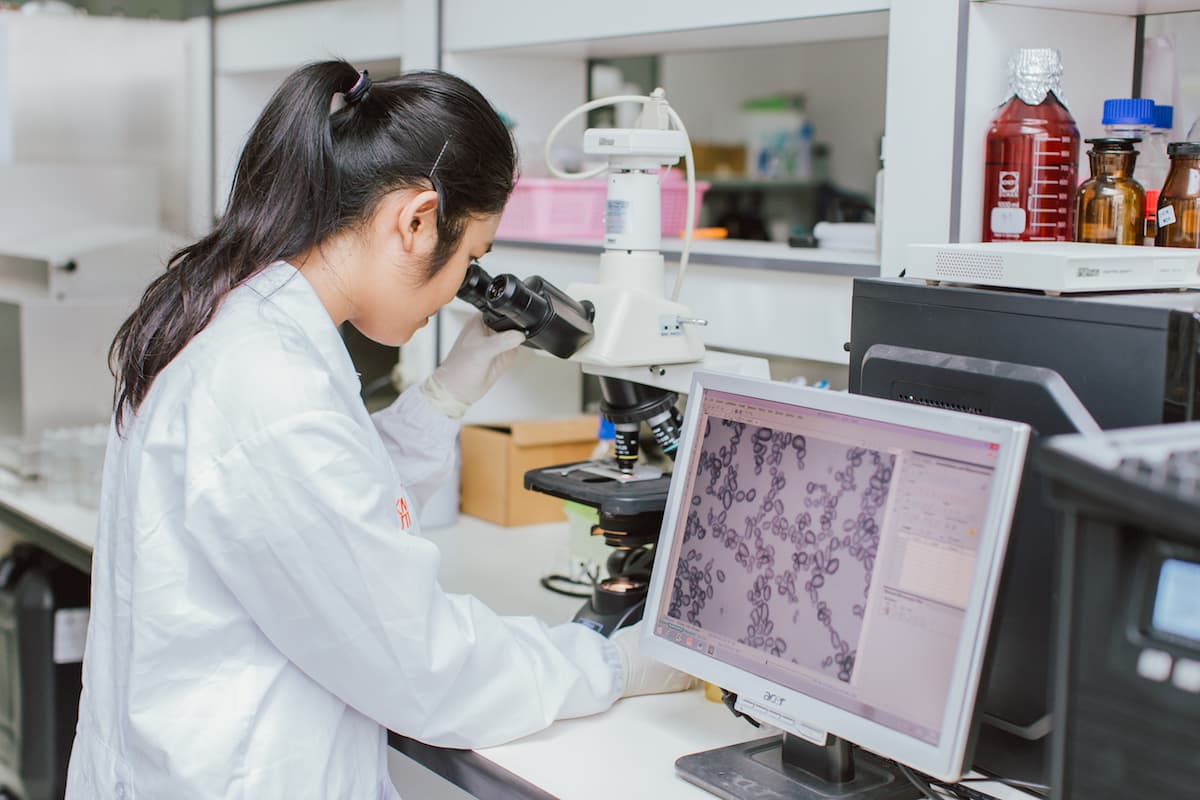Jared Auclair, associate dean of professional programs and graduate affairs at Northeastern’s College of Science and director of Northeastern’s Biopharmaceutical Analysis Training Lab, shares his advice on pursuing a career as a process development scientist.
“In the biopharmaceutical field, especially when it comes to biosimilars, it is said that ‘the process is the product.’ Thus, a process development scientist is critical to the production of important protein drugs,” Auclair says.
“As crucial as the role is, however, not many professionals consider this career path as they enter college or the workforce. Rather, it’s a career many ‘fall into.’ Although it would seem, then, that there is no direct path to be a process development scientist, this is not the case.”
In recent years, as protein drugs have become more commonplace and the demand for these professionals has increased, the path to becoming a process development scientist has become clearer.
Below, we define process development, explore the duties of a process development scientist, and highlight the steps that you can take to pursue this career.
Download Our Free Guide to Advancing Your Biotechnology Career
Learn how to transform your career in an industry that’s transforming the world.
What is process development?
In biotechnology (and other fields of science), a process is defined as a set of steps that, if followed correctly, will reliably produce an expected outcome, such as the generation of a product. A company or lab that manufactures biologics, for example, must follow a process in order to convert a raw substance into the final end product capable of treating a patient.
Process development, then, refers to the act of designing and developing these processes for use in a laboratory or organization.
What is a process development scientist?
A process development scientist is a professional who takes ownership over the task of process development within their organization. As such, they play an integral role in the laboratory team which can and often does impact the jobs of others.
What does a process development scientist do?
The role of a process development scientist can differ significantly depending on which field they work in, and can even vary within the sciences. However, in general, a process development scientist can be responsible for designing, implementing, optimizing, and monitoring various processes within their organization.
In biotechnology specifically, Auclair explains that a “process development scientist most often deals with the production of protein drugs from living biological systems, both on small and large scales. Pulling from theories in engineering and life science, the professionals in this discipline also focus on scaling drug compounds to mass production while remaining compliant with strict regulatory policies.”
Process Development Scientist Salary & Career Outlook
According to the career site Zippia, the average process development scientist earns approximately $42 per hour, or roughly $87,445 per year. The number of job openings in the field is expected to grow by approximately 8 percent between 2018 and 2028—twice the average rate of growth for all occupations—adding more than 10,000 new jobs.
Required Skills & Education
Auclair explains that, “like most jobs, a diverse set of skills is needed to succeed as a process development scientist.” Below we explore the experiences, backgrounds, and skill sets shared among top professionals in this field.
Educational Science Background
Process scientists need “an understanding of biology and chemistry in order to manipulate cells and processes to optimize the production of the end product,” Auclair says. “These roles also require knowledge of the general principles of engineering, as these fundamentals are critical in any scale-up process and the large-scale production of drug products.
In terms of formal education, these roles rarely require a PhD, but a master’s or bachelor’s degree in any of the above topical areas will suffice.”
For Example: Earning a master of science in biotechnology can be an excellent means of laying the groundwork necessary to begin a career as a process development scientist.
Hands-on Experience
In addition to traditional training or education in biology, chemistry, and engineering, Auclair says that becoming a process development scientist will also require hands-on, practical experience:
“This is particularly difficult to do in an academic environment, as most academic labs focus on research, rather than process development training. It can be done, however.
To get this necessary hands-on experience, one must find a degree program that offers a form of experiential learning or otherwise looks outside of academia to the industry. Beneficial hands-on training can include working under the tutelage of a process development scientist, actually performing the job itself (preferable), or it could simply include shadowing someone. In any event, the more exposure one has the more successful one will be in pursuing this profession.”
Project Management Skills
“Many aspects of a process development scientist’s role require project management skills,” Auclair says. “These scientists must be extremely organized and methodical to ensure processes are functioning properly, and, if they aren’t, they often must be adapted on the fly. Keeping detailed records of each step of the process throughout each round of the process is paramount to patient safety. As a process development scientist, it is also helpful to have an investigative nature, analytical mindset, problem-solving focus, and a methodical approach to testing new processes.”
Ability to Work on a Cross-Functional Team
“To be a successful process development scientist, you must be able to perform on a cross-functional team. This is often a bigger challenge in a process development role as opposed to a traditional biotechnology job, as you must be able to speak the language of an engineer and biologist, or even represent both aspects,” Auclair explains. “The ability to work across disciplines is even more crucial with the ‘Quality by Design’ movement occurring in the drug development field. Thus, to pursue a process development scientist role, one must be technically proficient as well as able to manage a team and complex systems.”
Becoming a Process Development Scientist
With the right skills and knowledge, a career in process development can be lucrative, stable, and rewarding. Earning a graduate degree in a relevant field, such as biotechnology, is an excellent means of developing the skills and expertise required to work in the field.
To learn more about this and other career opportunities in the biotechnology industry, download our free guide below.







Related Articles
Compliance Specialists: Who They Are and What They Earn
Science or Science Fiction? The Future of Personalized Medicine
In-Demand Biotechnology Careers Shaping Our Future